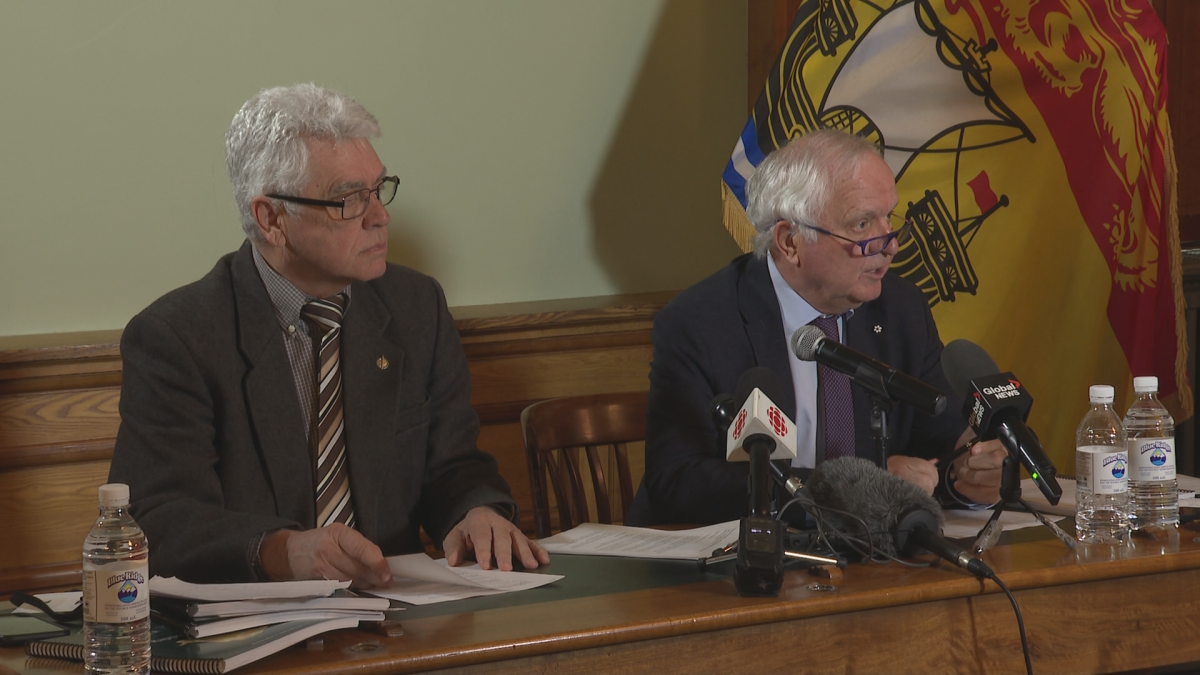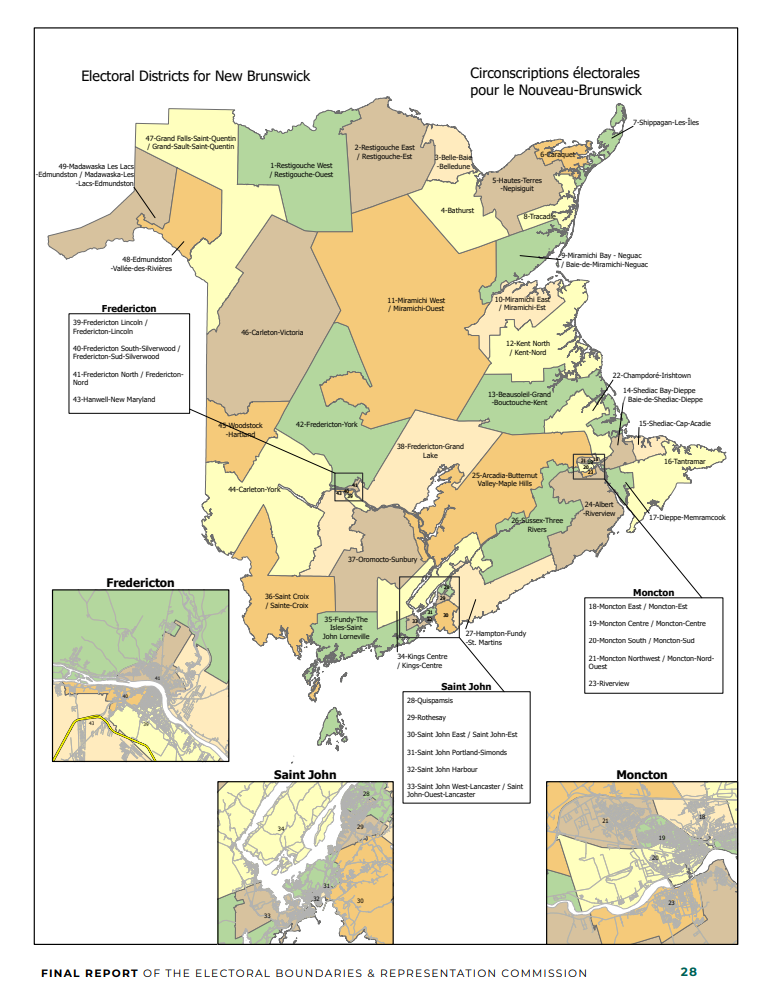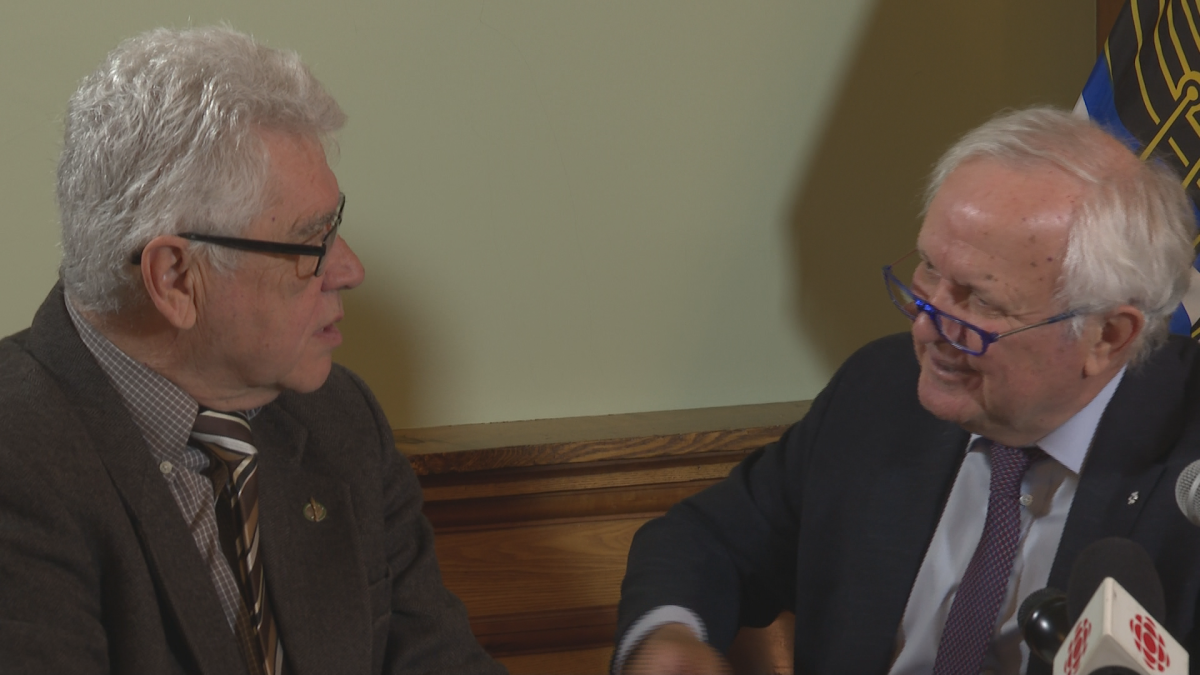The two commissioners who oversaw a committee to review the electoral boundaries are asking the government to change the legislation to allow a part of Shediac-Cap-Acadie to remain in a primarily Francophone area.

Provincial law requires the boundaries to be reviewed every 10 years, leading to some changes that drew criticism.
In the original proposal, the riding of Tantramar, which is mainly anglophone, had below the required number of voters to sustain its own riding. The commission proposed, under the rules, a section of Shediac-Cap-Acadie be added to Tantramar to make up the difference.
But the two areas are linguistically different and the community and its MLA spoke against it.
“We did make changes where possible,” said co-commissioner Roger Clinch. “In the case of the new electoral district of Tantramar, the commission was asked to reconsider including a small portion of electors in Cap-Acadie. This would have required ignoring the maximum deviation allowed in the electoral quotient.”
The math of the electorate
The quotient is the mathematical equation that determines the number of electors in a riding and each riding about an equal number.
It does allow for a deviation up to 25 per cent.
Tantarmar did not meet that rule, with the report saying it exceeded 29 per cent. It added 760 voters from Cap-Acadie.
Fellow commissioner Camille Thériault said it asked for a legal opinion, which said the commission didn’t have the authority to override the rules in the legislation.
It said the recommendation to change those rules around the quotient has been done in other provinces. The commission called for an overhaul of how it determined.

Get daily National news
“We’re saying, in the meantime, just make this … an exception because of the extraordinary circumstances,” Thériault said.
It’s something Shediac-Beaubassin-Cap-Pelé MLA Jacques LeBlanc said he respects.
“We’re going to try to bring solutions to remediate this challenge,” he said, speaking to reporters on Monday. “They got a legal opinion. Got to respect that. We have a committee, I have a committee, of citizens that are fully engaged, that were opposed to this, so I have to go back to them and consult.”
LeBlanc said he doesn’t know whether changes to the legislation would pass through the house, but he’s going to try.
Anthony Azard came as a representative of the Cap-Acadie Chamber of Commerce.
“We are very disappointed with the decision today … it’s not the decision we expected,” he said.
He said he will be collecting signatures from a petition already circulating to be presented at the next sitting of the legislature.
“I respect the work they did,” he said.
Fredericton split down the middle
It wasn’t the only riding that saw unwanted changes. The capital region, in particular the riding of Fredericton South, has been split in two.
It’s Green Party leader David Coon’s riding. No representative of the provincial Green Party was selected to be on the committee, despite the direct impact to his riding and the presence of representatives from both the Liberals and Conservatives — including a former premier.
He said the decision to split the riding down the centre of downtown doesn’t make sense and goes against even the proposal by the City of Fredericton.
“It’s going to be difficult to provide effective representation when the downtown community will be divided, when the downtown residential plat will be divided, when in fact a ward of Oromocto is connected to the new proposed Fredericton riding,” he said.
The commissioners defended their decision on Monday, saying the changes do align with the City of Fredericton’s request, which was to make four urban ridings, and in order achieve that, it cut them up to have three urban ridings and one mostly urban.
“It’s illogical,” Coon said.
He said he’ll be filing a complaint, and the commission has 30 days to respond to any objections on the changes, but isn’t required to do anything with them.
The commissioner did make changes to other areas that we highlighted as a concern, including maintaining Neguac in the Miramichi region.
“Examples included St. Quentin, Restigouche County, Neguac, and Campobello Island, among others,” Clinch said.
The new boundaries will be contested in the election scheduled for 2024.










Comments
Want to discuss? Please read our Commenting Policy first.